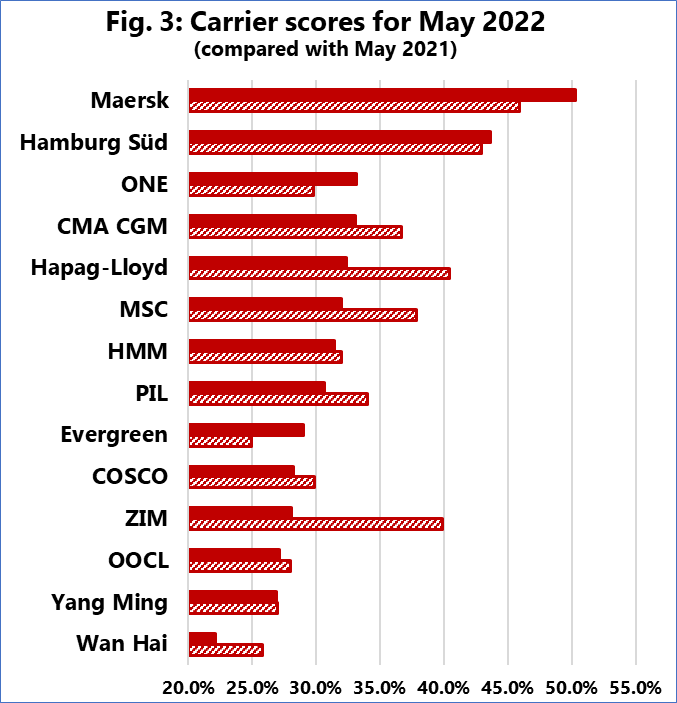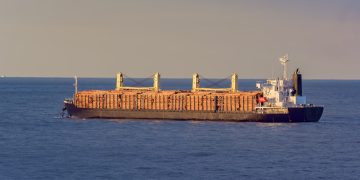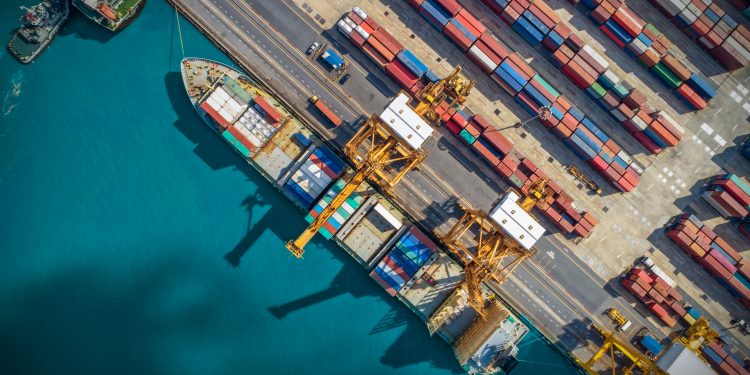Sea-Intelligence analyzed schedule reliability figures up to May 2022, revealing that schedule reliability fluctuating, at lower base.
Namely, global schedule reliability seems to continue to follow the trend seen in 2021, with schedule reliability fluctuating within a small range but at a slightly lower base.
[smlsubform prepend=”GET THE SAFETY4SEA IN YOUR INBOX!” showname=false emailtxt=”” emailholder=”Enter your email address” showsubmit=true submittxt=”Submit” jsthanks=false thankyou=”Thank you for subscribing to our mailing list”]
In May 2022, schedule reliability improved by 2.1% month on month to 36.4%, albeit still down year on year by 2.3&%. This means that the 2022 score has been slightly below the 2021 level in each of the first five months.
The average delay for LATE vessel arrivals decreased once again, this time by 0.37 days to 6.17 days in May 2022. The delay figure is now firmly below the 7-day mark, but it still continues to be the highest across each month when compared historically, albeit with the margin decreasing sharply.

With schedule reliability of 50.3%, Maersk was the most reliable carrier in May 2022, followed by Hamburg Süd with 43.7%. There were six carriers with schedule reliability of 30%-40% and six with schedule reliability of 20%-30%.
In May 2022, once again, a lot of the carriers were very close to each other in terms of schedule reliability, with 11 carriers within 7 percentage points of each other.
Wan Hai had the lowest schedule reliability in May 2022 of 22.1%. On a year on year level, only four of the top-14 carriers recorded an improvement in schedule reliability in May 2022, with the largest improvement by Maersk of 4.4%.

































































